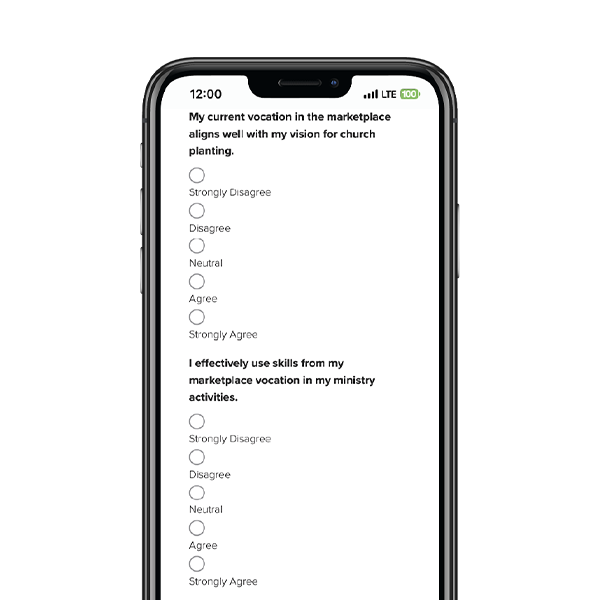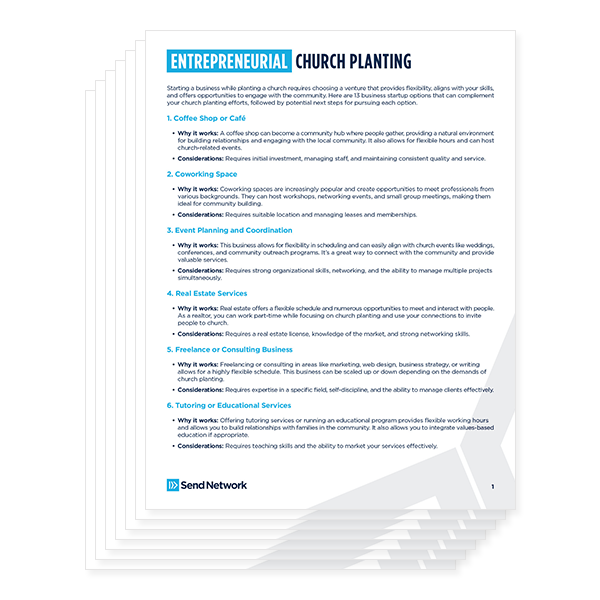By Dhati Lewis
In the world of church planting, you’ll find a lot of research with different strategies and practices for starting a church. There are lots of models for your service type, worship type, gathering rhythms, and the list goes on.
I’ve been a church planter and have worked with church planters for the last fifteen years, and I’ve experienced and seen firsthand the ways these strategies play out. So, here’s a quick list of four dos and don’ts in starting a church that makes a huge difference in how a church plant thrives—regardless of which strategy or model you choose.
1. DON’T be a copy-cat. DO develop a vision from burden.
Modern technology has given us the gift of access to so much information. We don’t have to learn much of anything from scratch because someone else has probably done it before and written about it. While this prevents us from spending a lot of time reinventing the wheel, it can become a crutch.
With church planting, instead of simply learning from others, we end up copying and pasting what someone else did into our context. But if you simply copy and paste what someone else has done, you will not be able to contextualize to your specific context.
Instead of starting with a model, strategy or plan, begin the process by developing a vision from burden. Developing a vision from burden means taking time to identify what story God is writing in your city, through your team and through your life. What unique burdens do you have? What unique burdens does your team have? What is the unique beauty and brokenness in your city, and where do those stories intersect? What vision has God given you for starting a church?
Don’t be generic in your responses. Be specific. Let your vision flow out of the unique burdens and gifts in your context. Then—and only after you have clarity on the vision—choose which strategy or method best fits your vision.
Your strategy should serve your vision. Not the other way around. When we put strategy or method before vision, it’s like the tail wagging the dog. Strategies and plans are there to serve the vision, not direct it. Getting these aligned is the most critical first step in starting a church.
2. DON’T start a nonprofit. DO start a family.
Now, I don’t actually mean that you don’t need to apply for 501(c)(3) status, but your tax exemption status is not top priority. Starting a church isn’t about starting a charity. It’s not about starting a nonprofit organization. It’s not about starting a business. Starting a church is starting a family. The church is not like a family. It is a family. And starting a healthy church means you need to think more like a parent and less like a CEO.
What kind of culture do you want in your family? How will you integrate that culture into the family? How will you care for one another? How will you ensure the leaders aren’t the only ones doing the work but that the whole church is engaged in family responsibilities?
There are many important things to handle on the business side of church planting; however, they must come at the right place in the list of priorities. But first, start a family, not a business.
3. DON’T hold back. DO count the cost.
The local church is the vehicle through which God is making disciples across the globe. The church is a weapon, attacking the gates of hell, pushing back darkness all over the globe. The battle we are fighting is a life-or-death battle. It is glorious and dangerous, and we will see God fight for us in supernatural ways.
Don’t shrink back from the challenges of church planting. Don’t shut down your emotions. Don’t disconnect from people for the sake of the mission. Don’t disengage your heart because it’s easier to work without feeling. Don’t hold back your heart from the mission. Engage with your whole heart, soul, mind and strength.
Don’t go into church planting blindly or naively, but carefully count the cost. How is this going to impact your family? Your marriage? Your personal relationships with friends and God? What can you do to proactively protect what needs protecting, grieve what needs to be lost and lead others to do the same?
4. DON’T do this alone. DO join a network.
When you started reading this article, you may have been looking for a how-to list on 501(c)(3) applications, the best church software, tips for buying a building, or how to program a Sunday gathering.
I intentionally stayed away from these things because they are secondary. My goal is to challenge you to develop your philosophy and vision behind starting a church so all these logistics will fall into place and help you instead of lead you.
At the same time, the logistics can be overwhelming, and you probably need help with them! Here’s where a team comes in. There is absolutely no reason for you to church plant alone.
As the vice president of Send Network, I want to personally invite you to consider joining our network. We are a family of churches and church planting leaders who partner together to plant healthy, Multiplying Churches; this network offers amazing resources and people all here to support you, your family and your church. We are stronger together than we could ever be alone, and we would be honored to partner with you in engaging your community with the hope of the gospel.
For more information on church planting:
- Visit sendnetwork.com to learn more about church planting with Send Network
- Read Among Wolves: Disciple-Making in the City by Dhati Lewis.
- Subscribe to the Send Network podcast, We are Send Network, to hear church planters’ stories, as well as valuable insights from the best church planting thought leaders and practitioners.
,
Published January 21, 2020




